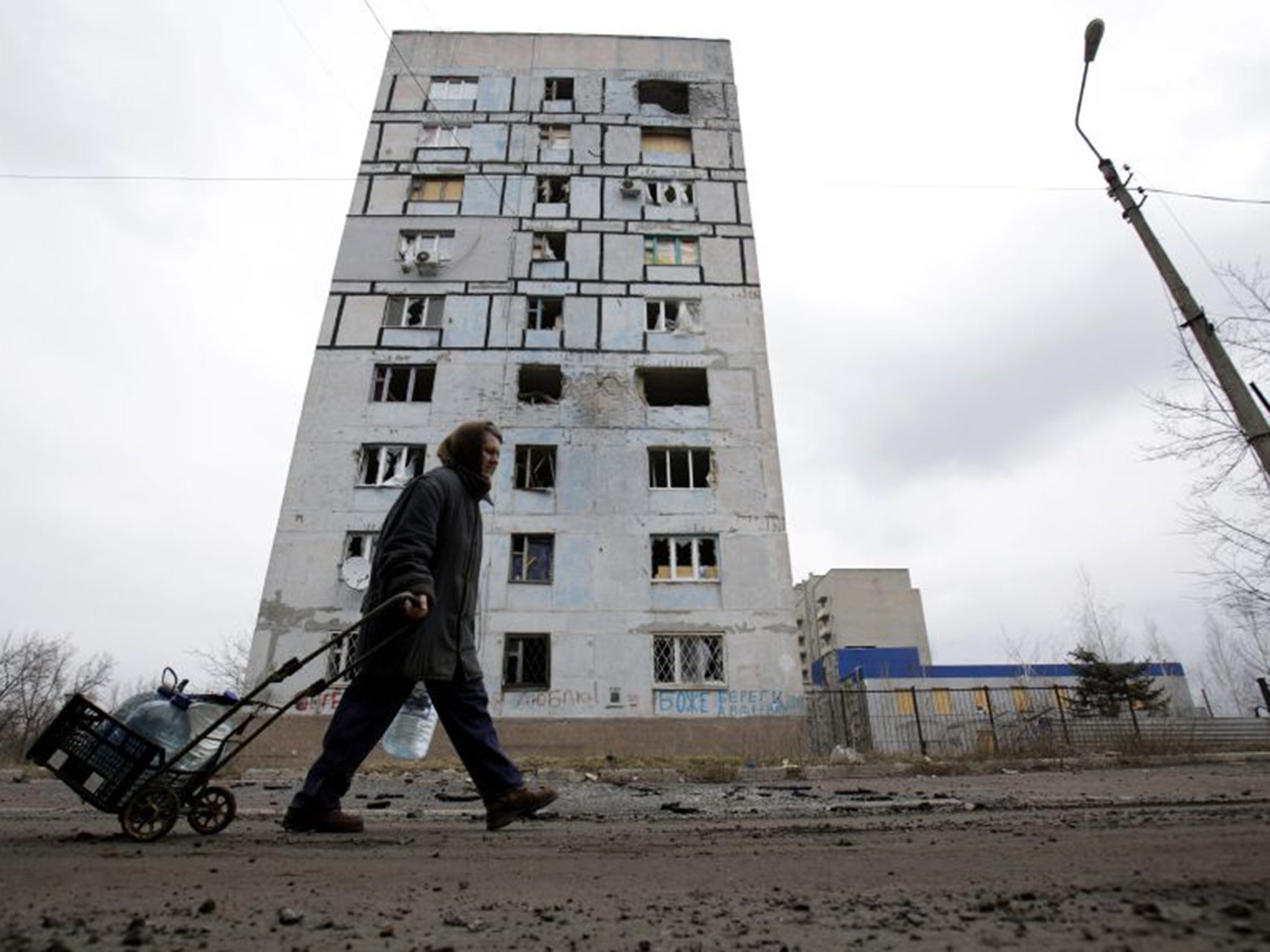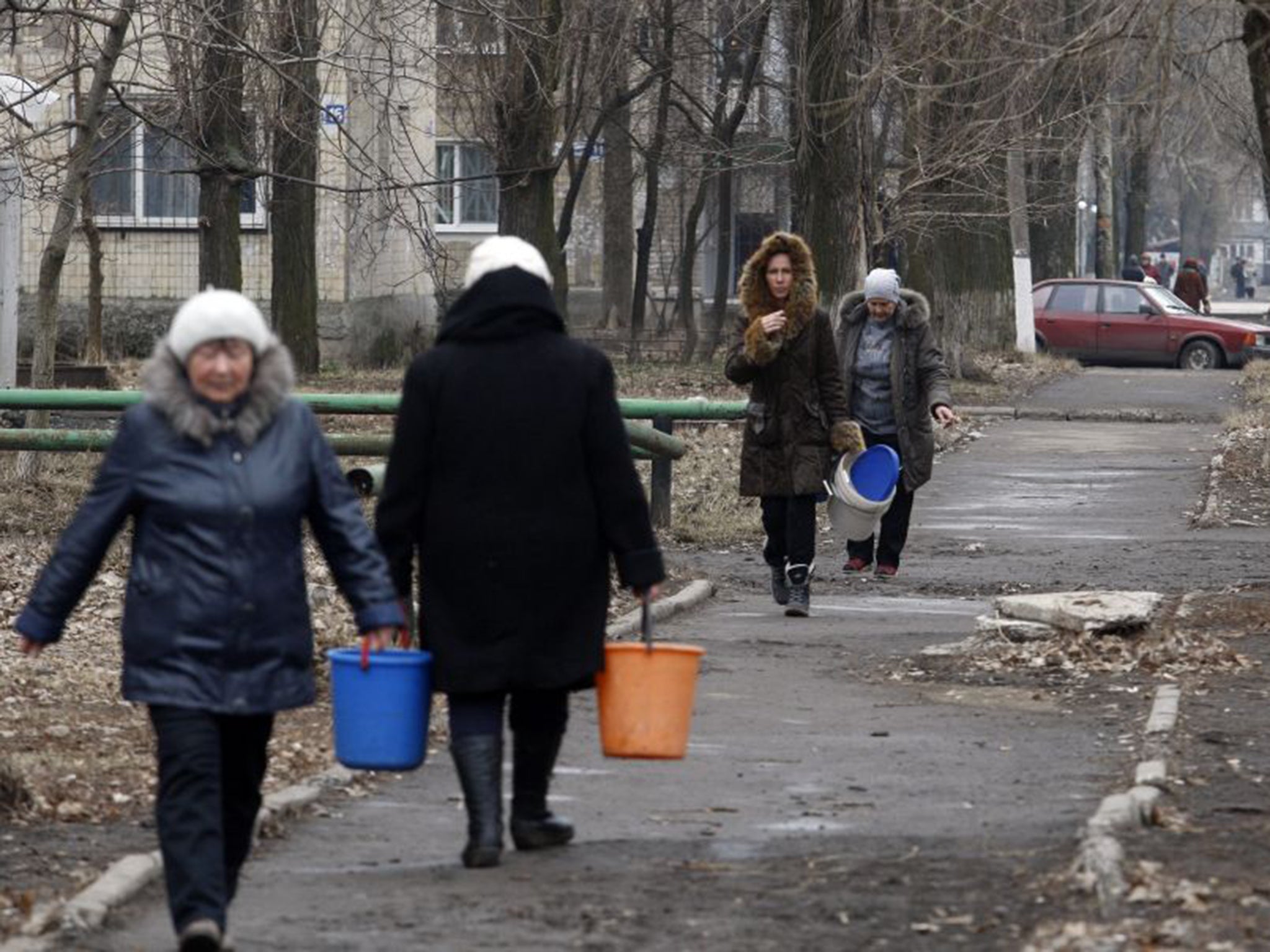Ukraine crisis: After the bullets and shells, it is red tape causing a million refugees to suffer
International aid-workers say bureaucracy is strangling efforts to provide those in need with care

Your support helps us to tell the story
From reproductive rights to climate change to Big Tech, The Independent is on the ground when the story is developing. Whether it's investigating the financials of Elon Musk's pro-Trump PAC or producing our latest documentary, 'The A Word', which shines a light on the American women fighting for reproductive rights, we know how important it is to parse out the facts from the messaging.
At such a critical moment in US history, we need reporters on the ground. Your donation allows us to keep sending journalists to speak to both sides of the story.
The Independent is trusted by Americans across the entire political spectrum. And unlike many other quality news outlets, we choose not to lock Americans out of our reporting and analysis with paywalls. We believe quality journalism should be available to everyone, paid for by those who can afford it.
Your support makes all the difference.Lyudmila Shabanova says she has been forgotten by her own government. When she and her husband fled the “living hell” of Ukraine’s battle with Russian-backed separatist rebels in the town of Avdiivka, she cursed the rebels and blamed Putin for the destruction of her city.
Now in the comparative safety of the government-controlled town of Sviatohirsk, she berated the Ukrainian government for failing to support her and her family. She described how she had to abandon her home, her eyes shining with tears: “The last feeling I remember was the sensation of the shell crashing through a wall. We lived on the upper floor. Everything – the ceiling, the roof, the windows – was destroyed.”
Ms Shabanova is one of around a million Ukrainians who have become refugees in their own country since the fighting began last April. Some have fled to safer areas of Ukraine, while others have relocated just a few miles from the battleground. Traumatised and impoverished, they have found little assistance.
While the conflict has slowed in recent weeks, with a ceasefire still technically in force, casualties are reported almost daily. The government and rebel leaders have accused each other of intensifying attacks in recent days around the airport at rebel-held Donetsk.
In government-controlled areas, according to both international aid-workers and struggling internally displaced people (IDPs), Ukraine’s bureaucracy is strangling efforts to provide those in need with care.
A recent report released by the Ukrainian Ministry of Social Policy stated that the government provides monthly financial assistance to displaced people: “884 hryvnas (£25) for disabled people and 442 hryvnas (£12) for able-bodied people.” Only those who seek refuge in territory controlled by the Ukrainian authorities are eligible and many people wait weeks, if not months, for payments to be processed.
Yelena Guseva, a 36-year-old with five children, displayed the stack of paperwork needed to officially register as an IDP with the Ukrainian government.
“I had to wait two weeks for a single stamp,” she said. “We are still waiting for the complete certification to arrive. Until then, we have no money and no future.”
With a fragile system of support in place, IDPs are dependent on the efforts of local volunteers and Western aid organisations.

At one such initiative hundreds of refugees waited patiently for its doors to open, the queue winding around the side of the building. Antonina Popova wept as she was handed bags heavy with buckwheat and potatoes.
“There are no words, I can only say thank you,” she said. “I have nothing left. I have no family and there is no one to care for me.”
Médecins Sans Frontières (MSF) is one of the few aid organisations able to access both sides of the conflict. Andreas Koutepas, an MSF project coordinator based in Artemivsk, says that Ukraine’s stifling bureaucracy – difficult even in peacetime – is delaying MSF operations. Along with other organisations in the area, MSF finds it difficult to import drugs and medical materials. The consequent pressure on their supply chain is immense.
“The documentation we need to move drugs from one place to another, to purchase drugs locally, all of these administrative procedures are very complicated and take a lot of time,” he said.
Pavlo Rozenko, Ukraine’s minister of social policy, said the “state of war” meant the government could not “provide each individual with a comfortable, separate housing allowance”. He said it was “doing everything in its power” and that payments to IDPs, as well as pensions and financial assistance, were received “on time and in full”.
“There are lots of problems,” he said. “Ukraine is on the brink of a humanitarian catastrophe. We need help, but we are doing a lot ourselves.”
Join our commenting forum
Join thought-provoking conversations, follow other Independent readers and see their replies
Comments